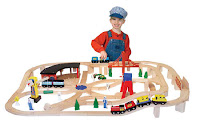Kids on the Autism Spectrum and Their "Special Interests": A Good or Bad Trait?

Your Aspergers or high-functioning autistic (HFA) youngster is naturally - and very heavily - drawn to very select topics or subject areas. As a mother or father, it will be important for you to recognize your youngster's areas of specialty and understand how to build upon them. Doing so will make your youngster feel tremendously valued, because you are communicating that you “get” the importance of the Special Interests (i.e., areas of passion and intrigue). Special Interests may be used as links to life-defining opportunities in learning, relationships, and employment. One of the diagnostic criteria for the disorder is “unusually intense preoccupation with one or more stereotyped interests.” This sets a negative precedent in how your youngster's interests are perceived. The use of words like “preoccupation,” “fixation,” and “obsession” are not helpful in everyday life. They imply that such special interests are socially inappropriate, inappropriate to one's chronolo
